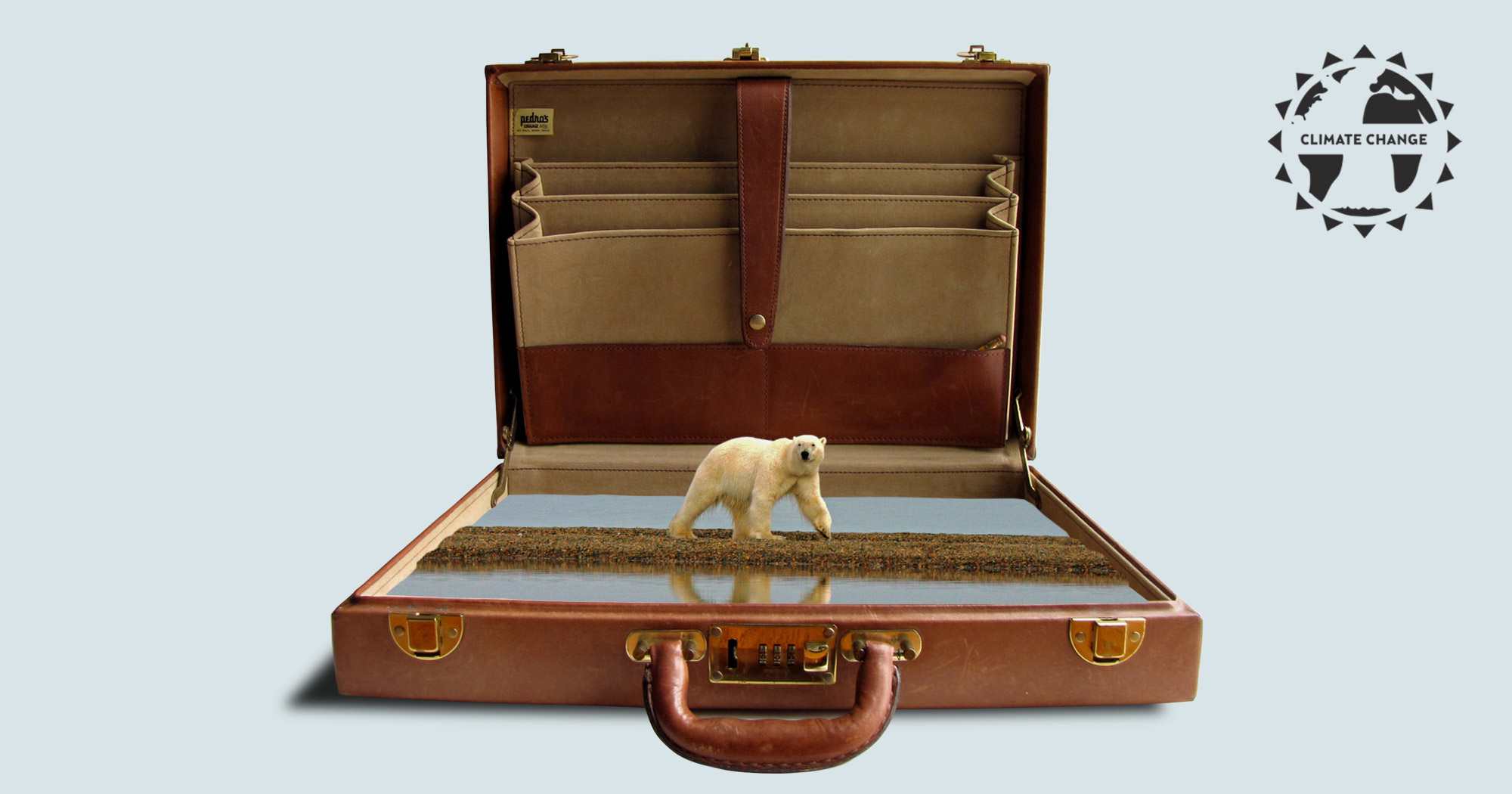With Government Out of Climate Change, the Business World is Stepping Up

Editor’s Note: This is part of our ongoing #IndieVoices series of commentaries and features in the month of March focusing on Climate Change. Read the introduction to the series here.
There is no problem more enormous, more urgent, or more serious facing humanity at this moment than climate change.
That may not sound like a particularly radical statement coming from the liberal librarian who writes the bimonthly climate spotlight for Foreword Reviews, but I’m not alone in it anymore. I could discuss the sudden shift in American conservative party thought, or the Paris Agreement,. But I’m not going to. I don’t think that governmental solutions are going to do much in the long term, at least, not in the United States. There’s too much political mud stirred up, too many careers built on denialism. Too many politicians who prefer to mutter après nous le déluge as they smile nervously for the cameras.
No, politics won’t stop climate change. But business will.
I’m not talking about individualist giants like Elon Musk, nor about targeted (and, if I may say so, rather cynically targeted) lifestyle brands like Whole Foods. I’m talking about Coke and Macy’s and Chrysler. I’m talking about CVS. They’ll save the world. They have no other option. Their bottom lines are at stake. If a corporation can truly be a person, then we’re about to find out if it can have a survival instinct, too.
If the idea that business might save the world seems a tad dramatic, then consider the fact that business also caused our current predicament. No government order or weapon of war could have damaged this planet like Halliburton has. Actual bombshells could not have caused a more permanent and irreparable mess than oil industry giant Shell did. By creating demand for home electricity, personal motor vehicles, and exotic foods, commercial industry generated a population wholly dependent upon a capitalist megastructure for luxuries unheard-of, and that megastructure in turn depended—and depends—on oil. Business is supported by petroleum like an elephant that balances on a pin.
And business would say that their mass production of a heavy-carbon lifestyle was a reaction to American demand for comfort and luxury, combined with government subsidies and a booming population. Who can blame industry for making money? America is, after all, the land of the dollar, and most businesses outside of the oil industry didn’t consider climate change a direct problem of theirs until recently.
Business has the Best Researchers
That myopic focus is a mixed blessing of the business world. On one hand, many large companies have been far too slow to consider their potential impact, too hesitant to look outside of their market domains for clues about how the vast money network of which they were a part might be affecting unexpected quarters. On the other, turning this intensity of gaze on the problem of climate change may be an effective way to clear up this mess in short order. Business has our best researchers, our best strategists, our best thinkers, and all of the money. Imagine if these assets were to be let loose against a single monolithic problem all at once.
That there is a market for the greening of corporations is evident in the sudden rash of books on the subject. Inspirational tracts like Mark Lefko’s 2017 spotlight round, Global Sustainability, focus on how companies like Unilever and Dow Chemical are going zero-waste-to-landfills, They do this not because it’s the “right thing to do,” but because their customers like knowing that their soap company gives a damn about their grandchildren, even if only as potential sources of income.
Manuals along the lines of The Sustainability Edge by Suhas Apte and Jagdish N. Sheth describe the means by which a company may actually execute a green transition effectively and to the benefit of their shareholders’ bottom line, to the increase of workers’ happiness, to the ultimate maximization of competitive edge. Both books, each in their rational and eminently businesslike manners, state the obvious: being a profitable company is impossible when the world economy is overwhelmed by the financial fallout of climate change. Smart companies think ahead. Smart drivers don’t steer their Ferraris into brick walls.
There is no reason for a company not to take the step of investing in renewables and leaving carbon in the past. Replacing oil with wind and solar won’t doom prices in the long run. Furthermore, there is the fact that this switch to new fuels is literally inevitable. Even if all the predictions and all the scientists and all the statistics turn out to be total bunk, then the oil will still run out someday. At the rate we’re using it, that day may not be much further along than the date at which we would either theoretically or actually choke ourselves out of a habitat.
If humans somehow burn every drop of oil and survive, then Merck and Anheiser-Busch and Proctor & Gamble will all have to go green someday soon. Except, of course, if they were to wait long enough, (après moi le déluge) they’d have to do so under emergency circumstances, doubtless losing billions of dollars in revenue alone as they fumbled through a rushed conversion to any other type of fuel. Accepting renewables now affords businesses the luxury of a graceful transition, of looking good later when others, including certain political leaders, have to scramble to catch the wagon.
Unweaving the Web of Oil Demand
And that brings me back to my original point: that this demand for oil is a web that commercial business wove and can unweave. Commerce is the deity from whose head sprang the idea of public image. The concepts of corporate entities as having the same rights as people, of lobbyists nurturing politicians from behind the scenes, of massive ad campaigns playing on the weaknesses of the human mind are all predicated on the fact that, despite all evidence to the contrary, seeing is still believing to most people.
Businesses need to start being visibly, aggressively, vocally in support of climate change mitigation. They need to make like Patagonia and publish their own books for climate activists. They need to make like Unilever and invite Mark Lefko to examine their green initiatives. They need to lobby hard and hire platoons of writers to create ads. And they need to start building solar panels on every available sky-facing surface.
It is time for business to once again show the world that it is capable of greatness. This time, it needs to save itself, and bring everyone else along with it.

Anna Call is a reference librarian at the Nevins Memorial Library in Methuen, Massachusetts. Follow her on Twitter @evil_librarian.
Anna Call
